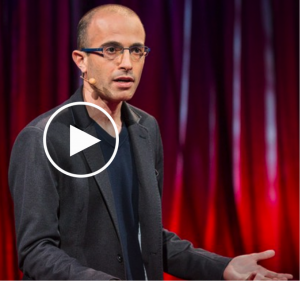

But perhaps it is more generous to welcome the chapter as it shows us Harari the man, full of needs and illogicalities like the rest of us, as he seeks to explain ‘how somebody so sceptical can still manage to wake up cheerful in the morning’ (p.309). They say a bad ending ruins a good story and it is tempting to think in that way about this brilliant book because there are many logical weaknesses in this closing credo.

At the end of the book he traces his own personal journey in search of faith and meaning, his rejection of any religious viewpoint, and his own reliance on a particular form of meditation which he practises for two hours a day to maintain, if not his sanity, then his clarity of mind. Ideas burst from every page many of these are highly controversial so there is never a dull moment.Īdherents to orthodox faiths will probably find his ideas more challenging than those of a more liberal persuasion because this is not only a compendium of academic ideas but a highly personal – even passionate – statement of faith, (albeit a rather bleak faith) in the nature of humanity, the state of the world and our future prospects. I found the three chapters on Liberty, Equality and Community especially engaging. Every section of the book contains touches of great brilliance and it is fair to say that there is not a single chapter that will fail to enthral most readers in some respect. He divides the book into five parts: the technological challenge, the political challenge, despair and hope, truth, and resilience. It would be impossible to do justice here to all twenty-one topics that the author has chosen to explore. Not next year or next month, but today’ (p.117). So, although this is an exciting read, it is hardly an optimistic one about humanity’s prospects long term: ‘Humanity has very little time left…We need to enter rehab today. In the first place (refreshingly) Harari confesses to ignorance of several subjects and secondly, he makes a plea for some intellectual humility among leaders, thinkers and writers which he thinks essential if we are to survive the threats of the coming decades which ‘add up to an unprecedented existential crisis’ (p.122). Is there no end to this polymath’s erudition? Well, fortunately there is – so the rest of us can breathe again and have some self-respect for our lesser but hard-won learning. But Harari’s credentials, following the world-wide success of Sapiens and Homo Deus, are such that an academic of his standing can get away with lecturing politicians, statesmen, scientists and world religious leaders on what they are doing wrong. From a lesser public intellectual his title might be considered a touch hubristic. 21 Lessons for the 21st Century – a critical reviewĪnother astonishing and brilliant book from Yuval Noah Harari.


 0 kommentar(er)
0 kommentar(er)
